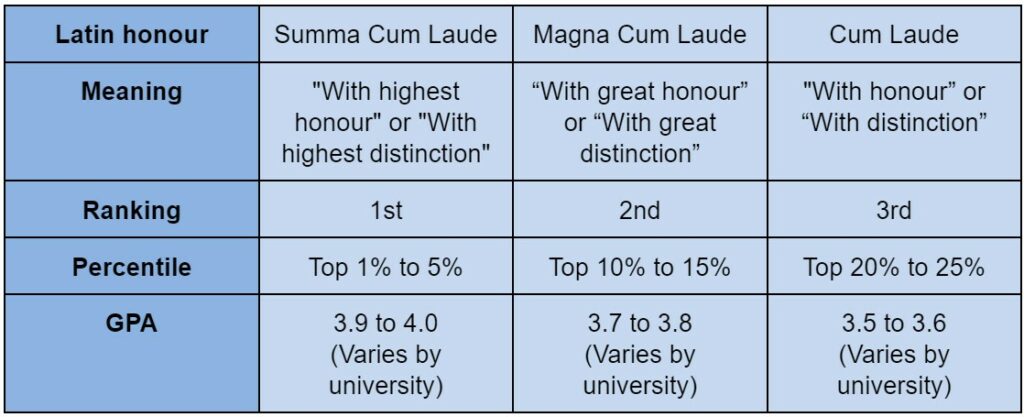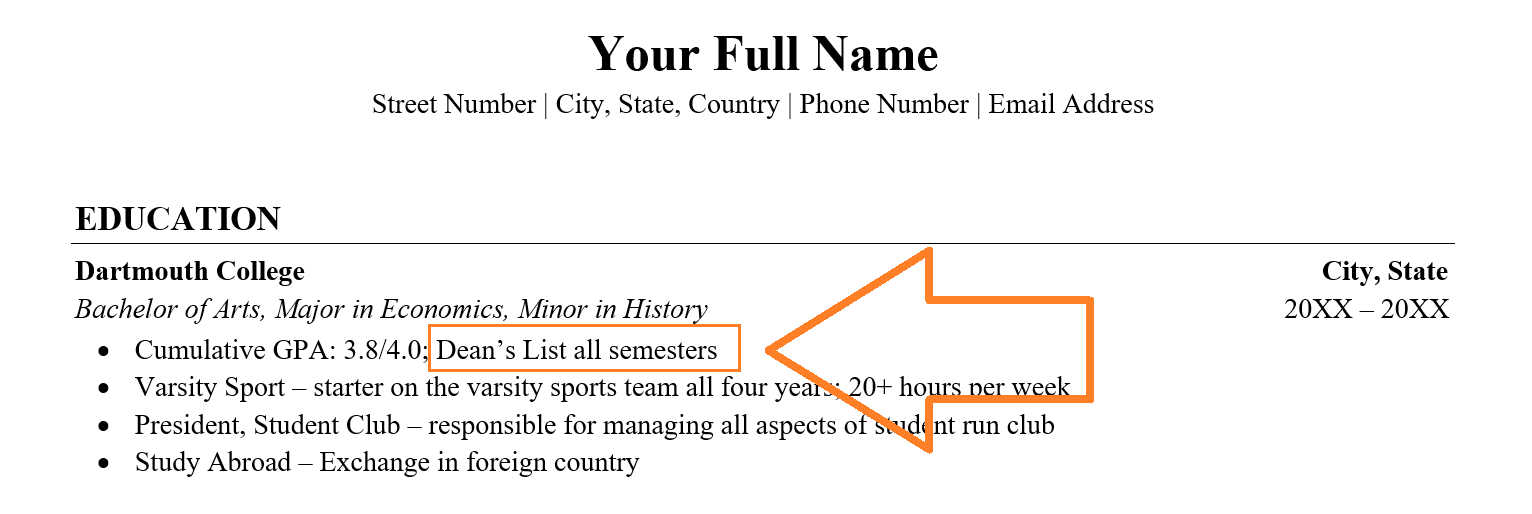
Believe it or not, the phrases 'Summa Cum Laude', 'Magna Cum Laude', and 'Cum Laude' are not actually spells from Harry Potter.
They're known as Latin honours, and represent varying levels of high academic achievement at a university level. As a fresh graduate, listing Latin honours on your resume can be the difference between getting hired and securing a dream job.
These honours are an excellent indicator to prospective employers that you're not only able to achieve high levels of excellence, but are also motivated to succeed. So, what’s the difference between Summa Cum Laude and Magna Cum Laude? And when should you use them in your resume?

Since rarely anyone in this day and age actually speaks Latin, it’s probably for the best that we define what all these Latin honours actually mean.
First off, Summa Cum Laude roughly translates to "with the highest honour" or "with the highest distinction". Both terms are interchangeable as universities around the world use one translation or the other.
While the translation may differ between universities, the level of the Latin honour does not change, with Summa Cum Laude being the highest academic honour that can be bestowed upon a graduate. The criteria for achieving Summa Cum Laude, once again, varies based on each individual university, but it is generally awarded to the top 1% to 5% of graduates.

Magna Cum Laude loosely loosely translates to “with great honour comes great responsibility” or “with great distinction”, and is the second-highest honour that can be awarded to graduates upon completion of their respective degrees.
Even though Magna Cum Laude is ranked below Summa Cum Laude in terms of academic achievement, it doesn't mean employers will not be impressed by it. Being awarded a Magna Cum Laude is no easy task as only the top 10% to 15% of graduates will receive such an honour.
Any holder of a Magna Cum Laude is without doubt part of an elite group of graduates who are very much sought after by employers all around the world. But still, don’t beat yourself up too much for not being a know-it-all like the folks in the category above, you’re still one smart cookie!
As mentioned above, there are a few differences between the Latin honours, and if you read the paragraphs but are still a tad confused, here’s a simplified TLDR table for you:

Latin honours aren’t the only honours awarded by universities. Some may also give students other awards, along with the Latin honours (to further boost their confidence, so to speak). Here’s a list of other types:
This award is for the recognition of the highest achieving students at a university, and is usually awarded based on a student’s GPA or CGPA.
Reserved for students that are working on special projects, or are enrolled in honours courses which are higher-level and aren't covered in the regular courses.
This award is based on how many courses are completed for credits and grades. Students with a GPA of 3.5 to 3.9 may earn academic distinction, while students with a GPA of 4.0 may even be awarded the highest academic distinction. Basically, it’s just like the Latin honours but not in Latin. So, English honours?
These two are awarded to the two highest-achieving graduates. The valedictorian is the student with the highest academic achievement, and the salutatorian is the second-highest achieving student.
This award is a scholarship for exceptional secondary school students. It usually includes funding for tuition and course materials, and may also include living expenses.

Including your Latin honours on your resume is a rather simple and straightforward way to show off/highlight your academic achievements to potential employers and recruiters. There are several ways to include said honours in your resume.
Here is an example of how to list your Latin honour in the degree line of the education section of your resume:
Education
National University of Singapore, 2017 - 2020Bachelor of Technology (Software Engineering), summa cum laude
Here is an example of how to list your Latin honour in a separate line of the education section of your resume:
Education
National University of Singapore, 2017 - 2020Bachelor of Technology (Software Engineering)Honours: summa cum laude (GPA: 3.90)
Here is an example of how to list your Latin honour in an awards and honours section of your resume with other academic achievements:
Awards and honours
Other relevant awards and honours (the word relevant is in bold on purpose, there really is no need to include your best scrapbook award in school)
Here are some other tips for listing your Latin honours in your resume:
As much as we’ve been giving graduates with Latin honours a hard time, listing them on your resume can really set you apart from other candidates vying for the same job, as it shows employers your commitment to success as well as highlight your exceptional work ethic, motivation, determination, and self-discipline.

The fact of the matter is, it's very impressive having all these; not many people have them, and it’s something worth including in your resume. Here are some other reasons why you should include them in your resume:
Latin honours are an excellent way to increase the prestige of your resume. However, it's not the be-all and end-all of securing your dream job (it does help though).
Prospective employers will also look at other relevant information such as previous work experience, personal and professional skills as well as how you can communicate and carry yourself in an interview. It's also important to constantly improve your career-related skill set so you are always up to date with the developments in your respective field.
So to sum this up, if you have a degree with Latin honours, by all means, use them in your resume. If you don’t, fret not; there are plenty of other ways to spruce up your resume to impress potential employers.
While a well-presented, typo-free resume is a great starting point, it's not the only thing you should consider when applying for jobs. Our tips on how to ensure you're properly prepared for an interview means that as soon as you've got the call from the hiring managers, you're ready to roll right in and impress them!